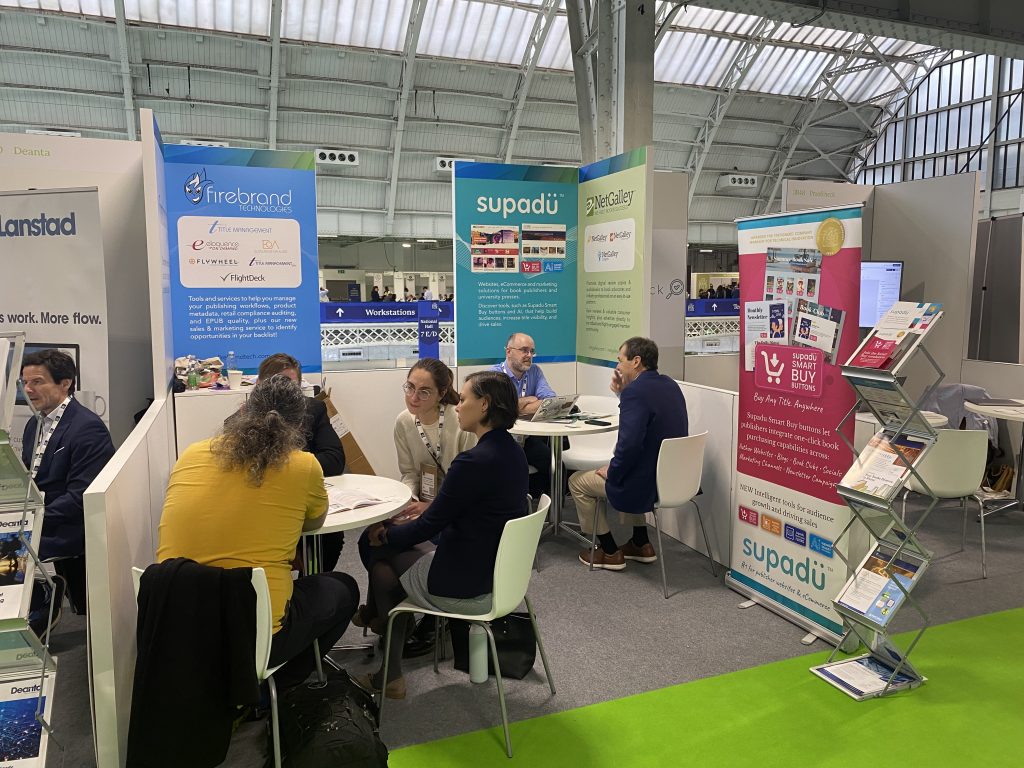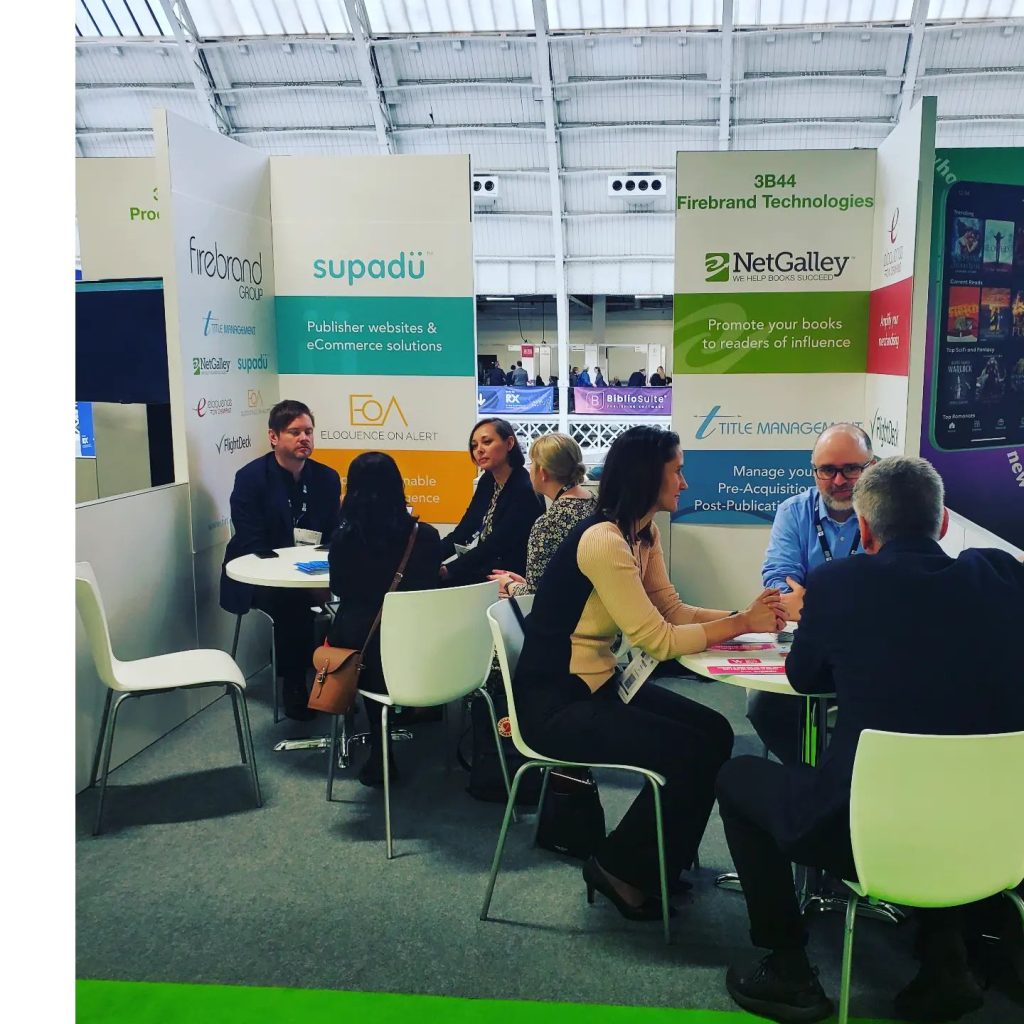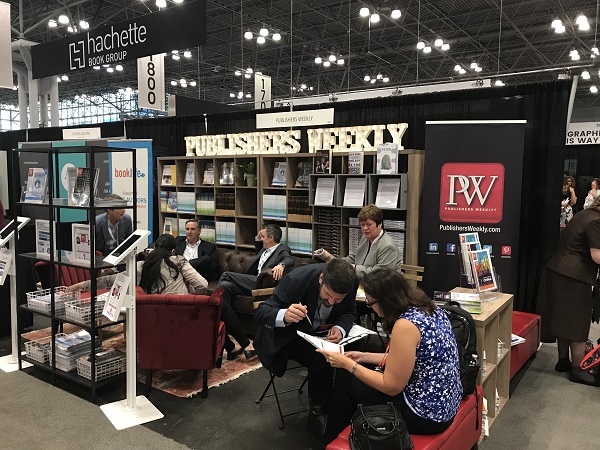2024 Conference Wrap Up, Part 3
London Book Fair 2024 was the busiest in recent memory, with the floors noticeably crowded well into the traditionally much quieter Thursday. The many sessions, seminars and talks were hugely popular, often resulting in standing room only. If there were presiding concerns, they were the effect of TikTok and the phenomenon of the books it has amplified most successfully, as well as the applications, perils and possibilities of AI.

BookTok and Influencer Marketing
There were several panels specifically devoted to TikTok, and many more about the broad use of influencer campaigns, and we noticed how much TikTok-endorsed and popularized genres dominated the huge video screens of the bigger publishers. Romance, Romantasy and high concept thrillers were the dominant genres, and nonfiction was much less visible on these stands as in years before.
In the session “BookTok: Bridging Communities and Redefining Reading” presented by Esther Fung from PangoBook and Léa Crumpton, they illuminated how social media platforms are reshaping reading habits and fostering inclusivity within literary communities. With the rise of BookTok, they said readers are discovering diverse voices and narratives, transcending traditional boundaries.
Publishers received a valuable lesson on leveraging behind-the-scenes videos to provide glimpses into the fun inner workings of working in a publishing house, and the importance of collaborations with influencers was emphasized, with a reminder to allow creators the freedom to infuse their unique style into promotional content, therefore maintaining authenticity.
This concept was reiterated again and again throughout various marketing panels. For instance, At the Byte the Book Drinks Reception, Kelly Weekes, Marketing Mentor & Author Coach, urged creators to prioritize building relationships over direct sales pitches, echoing the sentiment that social media is inherently about fostering connections. And in the session, “Spotlight on YA: Navigating a Crowded Market”, speakers emphasized the significance of genuine engagement over trend-chasing. In-person events and literary prizes emerged as potent avenues for garnering visibility and expanding readership, reaffirming the enduring value of community engagement in the publishing process.
By embracing trends and engaging with audiences consistently, publishers can forge meaningful connections in the digital sphere.
Artificial Intelligence
In terms of AI’s presence at LBF, there were many start-ups offering AI-enhanced or produced content. We observed stands that offered listening booths so attendees could hear AI voice renderings of classics like Alice in Wonderland, and heard from companies using AI to offer end-to-end advertising to aid book discoverability.
In conversation with some of our clients, we came to understand that publishers recognize where AI can be useful (enhancing internal workflows, creating starter marketing copy to be revised by a human), and where it can be harmful – the publishers we spoke to acknowledged that their readers are against AI-generated art, including book content and cover images.
Sessions like “The Future of Audio in Publishing: Global Trends and the Impact of AI” leaned into the need for transparency with readers, especially if synthetic voices are used. As reported in PW’s London Book Fair 2024: The State of Audiobooks, From AI to Ads, Videl Bar-Kar, v-p of audio at Bookwire GmbH, stated, “There needs to be real transparency and trust. Consumers need to decide, and we talked about it as well. I think there needs to be very clear labeling on behalf of what’s going out there and presenting to consumers.”
Read more of our 2024 conference wrap ups:
- Part 1: ABA Winter Institute
- Part 2: Audio Publishers Association Conference
And find us at the following events this spring!
- April 12, Book Industry Study Group (BISG) Annual Meeting
- April 12 – 14, Paris Book Festival
- April 25 – 27, Independent Book Publishers Association (IBPA) Publishing University





